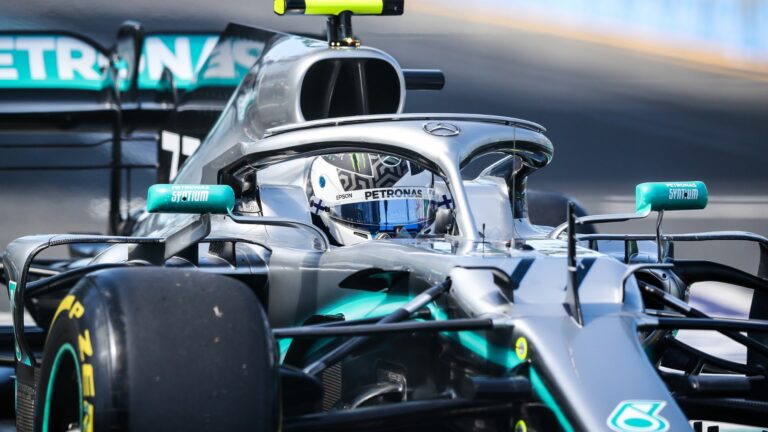Errors in maintenance that can lead to excessive gasoline expenditure

The maintenance of a vehicle is crucial not only for its efficient operation but also to avoid excessive gasoline costs. Many drivers are unaware that certain maintenance mistakes can lead to a notable increase in fuel consumption. From under-inflated tires to clogged filters, every detail matters and can have a significant impact on your vehicle’s economy. Knowing and correcting these faults is essential for improving fuel efficiency and reducing unnecessary costs.
Proper maintenance of a vehicle is fundamental not only for its performance but also to optimize gasoline consumption. Many drivers overlook certain aspects that, if not addressed, can result in a significant increase in fuel expenditure. Below, we explore the most common maintenance errors that can negatively affect your car’s efficiency.
Under-inflated tires
Tires are a crucial part of the vehicle’s performance. Maintaining the correct pressure in the tires not only ensures safety while driving but can also reduce fuel consumption. Under-inflated tires can increase gasoline spending by up to 5%. Therefore, it is important to check the pressure regularly and adjust it according to the manufacturer’s recommendations.
Sticky brakes
Brakes in poor condition can cause unnecessary friction, forcing the engine to work harder and, consequently, consume more gasoline. This problem can be easy to overlook, but if the brakes are not checked and maintained properly, it can lead to increased fuel consumption. Make sure that the brake pads and discs are in good condition to avoid unnecessary costs.
Clogged air and fuel filters
Filters play a key role in the efficient functioning of the engine. A dirty air filter or a clogged fuel filter can negatively affect engine performance, resulting in higher gasoline consumption. Cleaning or replacing these filters regularly will help ensure that the engine operates optimally, which translates to fuel savings. For more information on this topic, you can refer here.
Deteriorated oil
Engine oil is vital for lubricating the internal parts of the vehicle. If the oil is not changed according to the manufacturer’s recommendations, it can lose its properties and cause additional wear on the engine. This, in turn, can lead to increased gasoline consumption. Maintaining a regular oil change cycle is key for balanced and efficient vehicle performance.
Worn spark plugs
Spark plugs are responsible for igniting the air-fuel mixture in the engine. When they are worn or dirty, the combustion process is affected, causing inefficiency that can result in higher gasoline expenditure. It is advisable to check and replace them periodically to ensure reliable engine operation.
Air conditioning maintenance
The use of air conditioning can influence fuel consumption, especially if the system is not well maintained. A dirty or improperly functioning air conditioner can require greater effort from the engine, affecting efficiency and increasing consumption. Proper maintenance of the air conditioning system is essential to maintain a balance between comfort and economy.
Electrical problems
Electrical systems, such as temperature sensors or the battery, play a crucial role in vehicle operation. A damaged sensor can give incorrect readings, causing the engine to adjust its performance inadequately and consequently consume more fuel. Regularly check these components to ensure that the vehicle operates optimally. For more details on how to handle the check engine light, visit here.
Inefficient driving
Finally, it is vital to keep in mind that the driver’s behavior also plays a significant role. Aggressive driving, with rapid accelerations and sudden braking, not only harms the vehicle’s condition but also considerably increases gasoline consumption. Adopting a softer and more conscious driving style can help keep fuel expenses in check.
For those looking to improve their fuel efficiency, keeping the vehicle in optimal condition is essential. Additionally, alternatives such as vehicles with Start-Stop technology can offer additional benefits. Find more information about these models here.
Proper maintenance of a vehicle is crucial not only for its performance but also for optimizing fuel consumption. Ignoring small details can lead to a significant increase in gasoline expenditures, affecting both the owner’s wallet and the environment.
One of the most common mistakes is under-inflated tires. Maintaining the proper pressure in the tires not only ensures safety and stability of the vehicle but can also reduce fuel spending by up to 5%. On the other hand, sticky brakes can create resistance to movement, forcing the engine to work harder and consequently consuming more gasoline.
The condition of the filters also plays a fundamental role. Clogged air and fuel filters limit the proper flow of air and fuel to the engine, resulting in inefficient operation. Similarly, the use of deteriorated oil can affect engine performance and increase fuel consumption. Fresh, quality oil is essential for ensuring optimal operation.
Furthermore, worn spark plugs can cause irregular ignition, which translates to higher fuel consumption. It is important to check and replace these components at the right time to prevent the vehicle from operating inefficiently.
Finally, establishing a schedule for preventive maintenance is vital. This not only allows for detecting and correcting problems before they worsen but also helps keep the vehicle in optimal condition, minimizing fuel expenses. Adopting these practices not only benefits the owner but also contributes to a more responsible use of energy resources.




